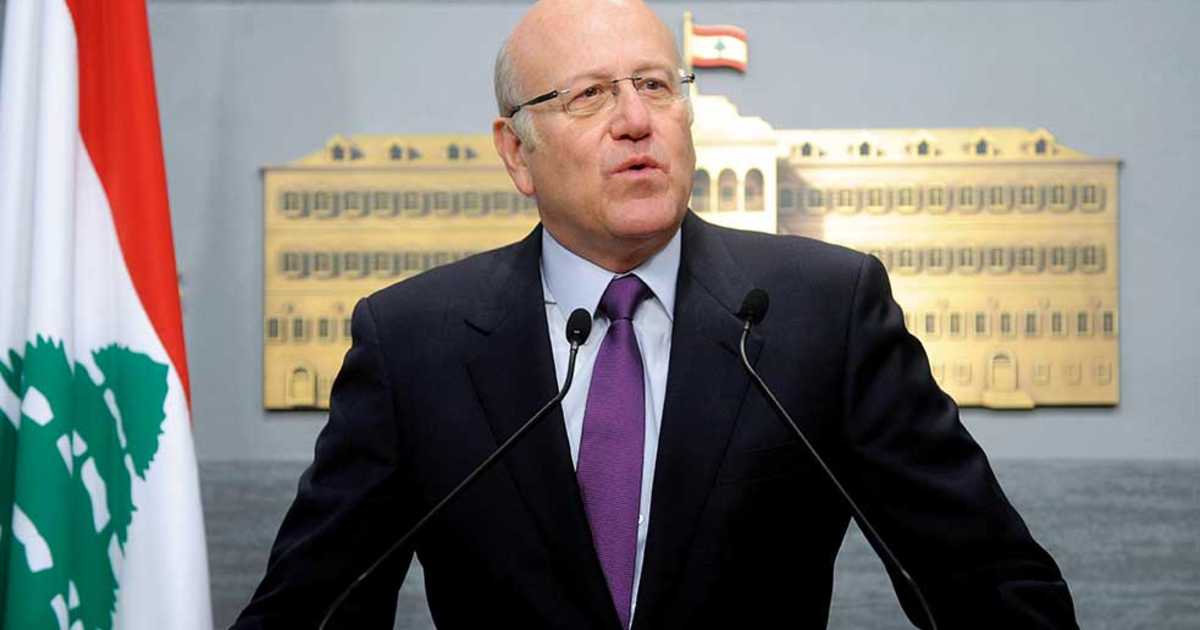As Lebanon continues with its march for change, some politicians’ skeletons seem to have been unearthed in the process.
According to UK-based English news agency The New Arab, former Lebanese Prime Minister and famously Lebanon’s richest man according to Forbes is currently being charged with corruption by a Lebanese judge.
Najib Azmi Mikati, a Lebanese politician who served as the Lebanese Prime Minister twice, reportedly made his fortune as the Co-founder of the telecommunications company Investcom, which he founded with his brother Taha in 1982.
He sold the company in June 2006 to South Africa’s MTN Group for $5.5 billion. In April 2015, Forbes estimated his net worth at $3.3 billion, making him the richest man in Lebanon.
On October 23, 2019, a Lebanese judge charged former Prime Minister Najib Mikati along with his son and his nephew with “illegal enrichment” amid an ongoing anti-corruption uprising in the country.
The popular Judge Ghada Aoun, who currently serves as the Public Prosecutor of the Mount Lebanon Governorate, also filed the same charge against one of Lebanon’s largest and oldest banks, Bank Audi, on the same day.
The charges reportedly involve the state-subsidized housing loans, which Mikati is said to have obtained from Bank Audi in an illegal fashion.
A source close to PM Mikati denied the charges, saying that the loans met regulations set by the Lebanese Central Bank, adding that these charges are void and unfounded in any substantial evidence.
The source went on to stress that the charges were politically driven and planted in direct response to former PM Mikati’s criticizing President Michel Aoun and because of his public support of the current anti-government protests. In a statement released to the judge, Bank Audi “categorically denied” any involvement in illegal enrichment.
Mikati served as Prime Minister of Lebanon from 2011 to 2014 and for a few months in 2015. He currently serves as a Member of the Lebanese Parliament and as the leader of a political party based in the northern Lebanese city of Tripoli called the Azm Movement.
On another note, Judge Ghada Aoun has developed quite an interesting and turbulent reputation in Lebanon, with most of the general public accusing her of being an outward supporter of the Lebanese President Michel Aoun, as well as leading with a political agenda.
Mikati has since held a press conference, and there have been no reports as to whether these charges have been dropped, or on how they have developed since they were filed just one day ago.
As protesters continue to demand the resignation of the current serving Prime Minister Saad Hariri and his government, one begs the question as to whether or not the serving Prime Minister is safe of his own lawsuits in the future.
Since Mikati’s legal case is currently a small drop in the pool of demands against corruption that the Lebanese public is hoping to see materialize in the coming stages, we do not anticipate this lawsuit will sway the outcome or the life of the ongoing protests at all.
Since we’re talking about “laws and legal démarches” by the government, citizens of Lebanon protesting across the country have the full right to be made aware that they as well can rightfully use current “laws and legal démarches” to achieve the aim of the revolution.
Our constitution clearly outlines our rights, and this could materialize as the most effective and focused ways to win the revolution. Take a look: Important: 8 Days of Protest Doesn’t Mean “Government Resignation”, This Does!






